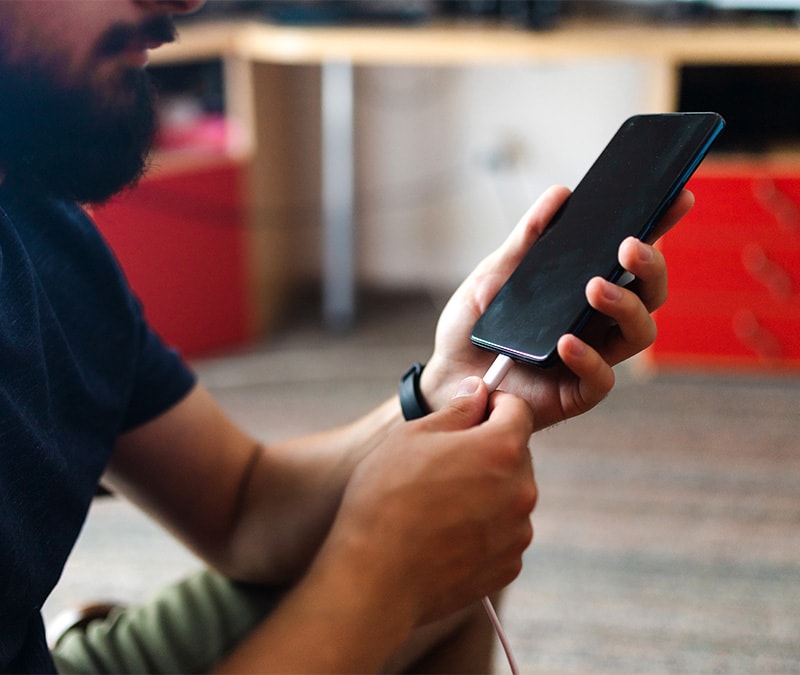Off the beaten track—How to choose a GPS for hiking safety
Ready to embark on your next hiking adventure? A GPS tracker may help you stay safe and connected while exploring nature.
For the adventurous ones, hiking may be an amazing activity. They get to immerse themselves in nature, exploring places where civilization has yet to make their mark. And, as a bonus, they get to escape the stress of daily life.
However, disappearing for a while carries some risks—particularly when you intend to do so in a place with little to no cell service or Wi-Fi. It’s better to protect your loved ones’ peace of mind by giving them the option to track your journey in real-time. That’s where GPS trackers come in.
Types of hiking trackers you can use on your next adventure
When it comes to hiking, having the right GPS tracker can make all the difference. Here are some types of hiking trackers to consider:
Satellite communicators
Satellite communicators use satellites to send and receive messages, making them ideal for remote hikes where cell service is unavailable. However, they come with higher costs and require subscriptions.
Pros:
- Work in remote areas with no cell service
- Can send SOS signals in emergencies
Cons:
- More expensive than other options
- Require a subscription service
GPS trackers
GPS trackers provide precise location data and are specifically designed for navigation. They are perfect for serious hikers but can be cumbersome and have limited battery life depending on the usage.
Pros:
- Accurate location tracking
- Dedicated device for navigation
Cons:
- Can be bulky
- Limited battery life
Smartphone apps
Smartphone apps are a convenient and cost-effective option for casual hikers. However, they rely on cell service and can quickly deplete your phone’s battery.
Pros:
- Convenient and easy to use
- Often free or low-cost
Cons:
- Dependent on cell service
- Drains phone battery quickly
How to choose the right GPS tracker
Choosing the right GPS tracker depends on your hiking style, experience level, and budget. Here are some factors to consider:
- Features: Look for essential features such as SOS functionality, two-way messaging, and weather updates.
- Budget: GPS trackers range from $50 to $600, depending on their capabilities.
- User-friendliness: Ensure the device is easy to set up and use.
- Durability: Choose a tracker that can withstand harsh weather conditions and rough handling.
- Compatibility: Check if the device works with your other gadgets and software.
- User reviews: Read reviews to gauge reliability and performance.
- Privacy: Ensure the tracker has robust privacy features to protect your data.
How to use your GPS tracker for a safer trip
GPS trackers can help keep you safe on your next hike by providing real-time location data, SOS functionality, and route planning assistance.
Before your hike
- Set up your tracker.
- Plan your route.
- Charge your tracker.
During your hike
- Regularly check your location.
- Stay on the planned route.
- Use the SOS feature in emergencies.
Get your devices hiking ready
A GPS tracker may be a good investment to make. If you’re considering getting one or already have one, consider a protection plan for your device.
With these insights and tools, you’re ready to hit the trails safely and confidently. Happy hiking!
FAQs about using GPS trackers for hiking safety
Is it worth getting a GPS for hiking?
Yes, a GPS tracker may help keep you connected with people outside in case of an emergency. Depending on the features of your tracker, it can help with navigation, route planning, and SOS communication.
How accurate are GPS hiking trackers?
Most GPS hiking trackers are highly accurate as long as there is a strong satellite signal—with precision typically within a few meters.
Are GPS tracking devices safe?
Yes, GPS tracking devices are generally safe to use and usually come with built-in privacy features to protect your data. Before choosing one, take a look at the features, privacy policy, and customer reviews.
Are there any GPS’ that will automatically let my family see where I’m at 24/7 even when I don’t have cell coverage?
Yes, some devices offer this feature, ensuring your loved ones can track your location in real-time. Remember to check what features your GPS tracker includes and how do they work.
Editorial note: Our articles provide educational information for you. Our offerings may not cover or protect against every type of crime, fraud, or threat we write about. Our goal is to increase awareness about Cyber Safety. Please review complete Terms during enrollment or setup. Remember that no one can prevent all identity theft or cybercrime, and that LifeLock does not monitor all transactions at all businesses. The Norton and LifeLock brands are part of Gen Digital Inc.




Want more?
Follow us for all the latest news, tips, and updates.